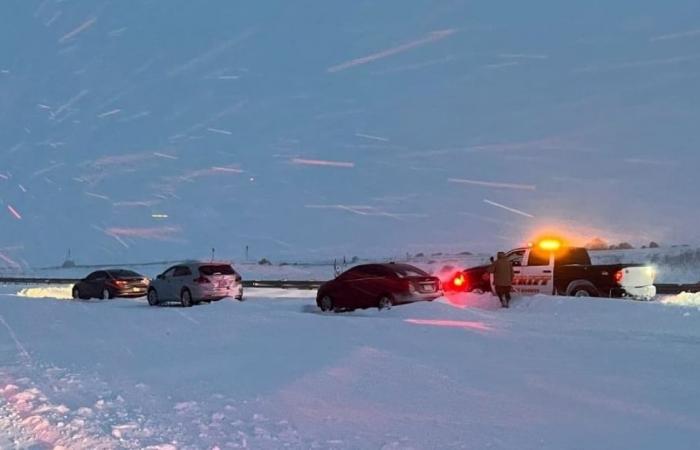A severe snowstorm stranded hundreds of drivers in New Mexico and Colorado. Approximately 100 vehicles are currently stranded on US Highway 64/87 near Des Moines, New Mexico, after a crash caused by a tractor-trailer blocking the road. Heavy snow, accompanied by strong winds, made traffic almost impossible, trapping motorists in icy and dangerous conditions.
Icy conditions and stranded drivers
Drivers stuck on the road had to wait (and sometimes still wait) for several hours in icy conditions, with temperatures well below freezing. Authorities have advised motorists to leave their vehicles running intermittently to avoid the risk of carbon monoxide poisoning, while conserving fuel. In some areas, snowdrifts reached more than 2.5 meters, making any rescue attempt very difficult.
Nearly six million people living in the states of New Mexico and Colorado have been affected by winter storm warnings since Thursday. Heavy snowfall led to road closures and numerous accidents. Freezing temperatures, combined with wind gusts of up to 65 km/h, created blizzard-like conditions, with snowdrifts exceeding 2.5 meters in some areas. Snow removal efforts continue, but crews are struggling to clear roads due to the thick layer of snow and strong winds.
The storm continues to hit the region
The storm is not weakening and is also impacting southeastern Colorado, where a winter storm warning remains in place through Saturday. Some places have already received up to 30 cm of snow, and forecasts call for up to 60 cm more in some areas.
Residents should remain vigilant as these dangerous conditions are likely to persist for several more days. Rescue operations were still underway Friday morning.
France
World






